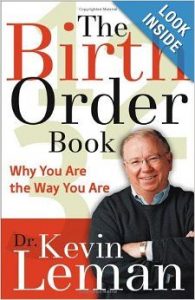Wake Up Tucson
/in homepage posts/by mainsiteadmin(Augus 31, 2016 – Facebook post to our listeners) Tune in this morning for the last show.
The final episode of M.A.S.H. the last episode of Seinfeld….this will be one for the record books!
It’s been a long journey with my friends Ed Alexander and Chris DeSimone. After over 7 years we learned each others hot buttons, we know how to spark a good debate and we have an awful great time together waking you up. The stories of where people listen to us, how we’ve become part of their daily routine and what our listeners have learned about local and national issues is truly rewarding and humbling to hear.
There’s a few people in local leadership that are glad to see me go but we’ve always tried to keep the criticism on the issues. I ran for office back in 2008 to make the community a better place for my children and all the small business of Pima County. Having been a serial entrepreneur, I’ve lived the struggle of making ends meet. I’ve dealt first hand with a stupid government regulation. On the show we try to give these stories a voice.
My work at Catholic Community Service lead me to run for office and then on to the airwaves. After years of working to solve the needs of the poor I learned that giving a man a fish isn’t going to solve anything. My role was to teach men to fish. For me that meant jumping into the policy mix to debate the ideas of free markets and give a voice to those that were unable to rise up. The radio shows consistent message was working to create a level playing field for everyone.
I’ve met hundreds of great people. I’ve interviewed over 1000 members of my community and I’ve been on air, live every morning for 3758 hours. For every hour live we are prepping at least two. So according to Malcom Gladwell; “an extraordinarily consistent answer in an incredible number of fields … you need to have practiced, to have apprenticed, for 10,000 hours before you get good.” I’m finally hitting the ‘get good’ of my professional radio career and I’m moving on.
I’ve always looked at where I was in life and fast forwarded to when I’m 90 years on and on the front porch rocking chair. When I have fear of a risk, or a hesitation on a major life changing decision, I always fast forwarded to the rocking chair. Would I have been better off playing it safe or taking a road less traveled. 7 years ago was one of those moments. I’m better off today having made that scary leap to jump on the microphone.
The radio show and deep dive into politics has made me appreciate the foresight that went into forming this Country. Those guys, back in the late 1700’s understood how we’d mess up governance if we were left unchecked. I’ve seen some scary patterns in men/women that are given power. I’ve watched a very few political, or academic or business leaders stand up in the face of tremendous personal attacks to do what they think is right. Whether I agreed with their direction or not I’ve always respected someone with convictions. I’ve seen good leadership and a whole of lot of bad. The more I did the show, the more I learned. If I could boil it all down, I’ve come to realize that the invisible hand of the market will always correct what ails our society; it’s just a matter of time.
Chris DeSimone and Ed Alexander will continue to wake you up each morning and I’ll be sitting in from time to time.
Tune in this morning for local and national election results and the official Wake Up Tucson break down of the primaries. KVOI.com or 1030am the Voice – 6am to 8am.
Thanks for listening, I hope you learned, I hope we made you think and I hope you laughed.
If you want to catch up on old shows visit KVOI.com for podcast
Weighing in from time to time on a national podcast on the intersection of business and politics, check out Politics Sucks! Let’s Talk About It.

Congressman David Schweikert On Wake Up Tucson
/in homepage videos/by mainsiteadminKVOI Interview with Congressman David Schweikert talking about the future of America.
Small Business Giving Up
/in homepage videos/by mainsiteadminOn a national level and locally in Tucson and Pima County the small business owners are struggling more and more lately to make all the ends meet. The banks aren’t lending, the customers aren’t spending and times are difficult. It’s time to realize that small business makes the community go around and we must support our small business owners.
Leman Academy – Back To School
/in homepage videos/by mainsiteadminIt’s back to school time at Leman Academy. New this year is a lot of staff members, a new location in Sierra Vista and a new PreK at the Marana campus.
Anita Street Market Interview
/in homepage videos/by mainsiteadminWake Up Tucson spends a lot of time discussing the amazing stories of the small business owners that make up the fabric of Tucson. Many local restaurants are spots you stop in order some tortillas and go about your day. We want to bring to the story behind the menu. We want you to know the struggles and joys of the family run business.
The Anita Street Market is another in a series of restaurant stories that we want to share with you. Anita’s is a family market, store and restaurant that has three generations of Soto family members working day in and day out to serve us Tucsonans. List to Gracie Soto and the story of her grandparents.
Eat and shop local folks.
Broken Healthcare Solutions – Podcast
/in homepage posts/by mainsiteadmin11/18/2015 –
The news is peppered with Obamacare stories, mixed messages, broken promises and a whole bunch of uncertainty. Allow me to share some local stories and first hand experiences on how the health care overhaul is affecting doctors offices, hospitals and patients right here in southern Arizona.
Outpatient Surgery Saves Medicare $500 million but who cares? A friend of mine is a CEO of a company that has been in discussion with Medicare officials for over a year regarding making a slight increase in their company’s outpatient surgery procedure reimbursement. Their analysis proved that shifting the expensive procedure out of hospitals and into surgery centers the Government could save over $500 million per year. After years of waiting and dozens of meetings last January Medicare made the change. Three months later, the Government rescinded their decisions after the hospitals saw the financial impact on their bottom line. So is government run health care about patient care, financial cost benefit or who has the best lobbyist?
Die with dignity as long as the price is right. There has been a steady increase in the use of hospice services in the US over the past decade. Everyone realized that moving terminally ill patients to comfortable settings staffed by people trained to handle the end of life care saved money and was the best for patient care. In speaking with one of our region’s largest hospice providers I learned that hospitals are waiting longer to call in hospice services, many times sending patients a day or two before they passed. Why you ask? The answer is money, hospitals can earn more per day, especially off of Medicare patients, by keeping a the beds filled with sick patients.
Doctor, accept Obamacare and get a 30% less per visit. Many of the big name insurance companies are marketing new plans under new names for Obamacare. Last week our practice received a letter congratulating us that we could now start servicing our patients with the new Obamacare qualified plans. The only catch is that our pay per visit is between 20% and 30% less for the same visits on non-Obamacare private plans. If you want to know why the ‘You Can Keep Your Doctor’ promise got broken, look no further. What business today do you know that can take a 30% across the board cut for the same level of service?
Medicare where all the money goes. According to a 2012 Urban Institute study, a working couple pays in to Medicare $122,000 over their working life. They take out $387,000. No matter how you slice it the numbers don’t work. With baby are boomers rolling into a period where their healthcare utilization will be the highest, expect some major bills racking up in America. What can we do to balance the equation? The most likely scenario is to restrict care, but since senior vote more than the working Americans, don’t expect that to happen any time soon. We could raise payroll taxes and take more out of working Americans paychecks. With lower paying jobs and pressures from everything including grocery bills, student loans, state and local taxes that would be a tough blow to the overall economy. The third option it to keep putting the short fall on the credit card in the form of national debt, how long can that keep going on?
The poor hospitals need bailed out. TMC invested over $250 million over the last few years including a new orthopedic surgery center. Northwest Hospital just spent $50 million into a new state of the art surgery center. The Pima County taxpayers have handed over Kino Hospital to University Medical Center along with $125 million over 6 years and another $30 million last year and $15 million a year forever. If things are so tough for hospitals why are they spending so much in major capital improvements? Does a town like Tucson need three or four hospitals with cardiology departments, or orthopedic surgery centers? How about some specialization within medical categories? Hospitals are buying up doctors to gain control of each aspect of the health care dollar. We are going back to the late 1980’s and 1990’s and the old HMO’s. If you remember those HMO days with $5 co-pays and doctors as gatekeepers restricting care. Why didn’t the HMO’s take off? If you remember, patients rejected the lack of choice and doctors rejected not being able to care for their patients at the level they believed was needed. The $5 co-pay has been replaced by the $4000 deductible and the insurance companies have been replaced by the hospital networks but how is this any different?
Look no further than the VA to see what our country is in for under Obamacare. Four years ago, after veterans care scandals at Walter Reed Hospital, Congress and President Obama authorized $300 million in funding for a new computer system and 3300 new employees. Even with money, staffing and the full force of government, the VA acknowledges that there are slightly more than 800,000 pending claims clogging its 58 regional offices with an average wait time of 273 days before a claim is processed. The HealthCare.gov web site, originally budgeted at $80 million was a huge fiasco and now topping over $1 billion is supposedly fixed. Welcome to centralized planning and government control of healthcare. We’ve seen 38 different delays in the roll out of Obamacare. Some due to confusion, some due to regulatory uncertainty and most politically motivated. Technocrats will never be able to fix something as complex as healthcare. Competition and free market principals got our country this far, why would we expect to take 19% of our economy and hand it over to politicians and bureaucrats and hope for a better outcome. Just putting in more tax dollars hasn’t worked for k-12 education, college student loans or home ownership, why on earth would it work in healthcare? From this article forward, every time you hear Healthcare Insurance Company, think utility. Health insurers like United, Cigna, Aetna made a deal with the Federal devil has ultimately caused their demise. Given the way this bill was pushed through with little debate they may not of had a choice. The Federal government is now deeply in control of the insurance industries profit margins, the Feds will subsidize their losses, the ACA is mandating what to cover and what should be paid out to claims. It couldn’t happen to a better industry but their days are numbered, watch for the hospitals networks to take center stage and the insurance companies to cease to exist.
There are solutions to this issue but they involve telling special interest that the pot of money they have been pulling from is drying up. The solution involves putting patients and doctors back in control of health care. One quick solution would have been to create heavily subsidized high risk pools to solve the pre-existing conditions problem One of the chief reasons for the Obamacare role out was to stop the ‘medical bankruptcy’ syndrome. Lifestyle choices like smoking or obesity should have a carrot and stick approach shifting others bad choices away from society and back on their own pocketbooks.
Leman Academy of Excellence
/in homepage posts/by mainsiteadminIt’s mighty hard to know how to act sometimes, whether you’re a kid, a parent, a middle-aged adult, or in the last few scenes of life. Two internationally renowned experts who have researched those many roles live right here in Tucson. Executive Editor Scott Barker sat down with Kevin Leman, Ph.D., and Andrew Weil, M.D., for a chat.
KEVIN LEMAN, PH.D.

Dr.Kevin Leman is strolling through the halls of the Leman Academy of Excellence, kids gravitating toward him like static-charged socks to a blanket. Smiling as he goes, in his casual jeans and pale blue button-front shirt, he resembles a favorite uncle crossed with a savvy CEO, with a little 1960s-era standup comedian thrown in. If you watch the renowned child development authority and author at work, effortlessly providing encouragement and offering advice, you would never know that he was once a terrible student. In his youth, he had little prospect of graduating from school, much less one day running one named for him.
“I graduated fourth from the bottom of my class in high school,” he notes. “I ran across my ninth grade report card a few years ago, and I asked my publisher to reprint it in one of my books. I even flunked health and PE. I put that report card in the book because sometimes people think you’re stretching the truth.”
Through his transformation from an academically struggling class clown to a sought-after psychologist, he has gained a lot of insight. And being a parent (with Sande, his wife of 44 years) and grandparent, his approach to childrearing has been forged in the crucible of real-world experience.
What he has to say about raising healthy and responsible citizens — documented in New York Times bestsellers such as Have A New Kid By Friday, Parenting Your Powerful Child, and Planet Middle School, provides invaluable insight into one of the most difficult stages of our lives: childhood.
MYTHED BY A MILE
It seems that every celebrity who has young kids gets booked onto a talk show to explain how they manage to “do it all.” And there is no dearth of bloggers who have become famous (or notorious) for touting their various parenting techniques. One hardly knows who to believe anymore, in a world where an expert is simply someone with a large Facebook following.
Leman understands the frustrations of parents who may be getting advice from everyone from their in-laws to their gym buddies. His books, seminars and other instructional methods cut through a tangled mythos to get to the facts about what kids need.

“One of the biggest myths is that kids need to feel like they’re the center of the universe,” he observes, kicking back in a meeting room on the Leman Academy’s campus. “And if you look at how parents treat their kids today, for the most part, parents are driven by the belief that their child has to feel so special. Even though the kid strikes out at a Little League game, never lifts his bat, watches three straight pitches go by, which is a minor miracle if you’ve ever watch Little League baseball, the young parents are yelling, ‘Great at bat Michael! Great at bat!’ I’ve got news for you — it was a lousy at bat. He didn’t even swing. What would be helpful in that situation, rather than blow smoke at that child, is to say something like, ‘Hey, rough day at the plate today, Mike. I’m going to be home early on Wednesday and Thursday night if you’d like me to throw batting practice for you.’ In other words, failure is good. Home needs to be a place where you learn how to fail. Talk to any successful person, and they will point to failure in their life.”
It was the prospect of a lifetime of failure that caused Leman to finally learn to apply himself when he landed on the University of Arizona campus at the age of 19. “I had a sister who was perfect, and a brother who was the quarterback of the football team and a great student. So I became the best at being the worst,” he admits. His parents tried to manage his misbehavior with an authoritarian approach that was pretty standard for the post-war years. “In my house we were Irish Catholic, and my father used to threaten us with a shillelagh. I remember when I was nine years old hearing, ‘You want me to get the shillelagh?’ I never saw one … I didn’t know what one was. I was a sophomore at the University of Arizona when I discovered that it was a walking stick.”
As disastrous as it can be when a parent tries to rule with an iron fist, the opposite extreme, which Leman sees a lot of in his travels, can turn out just as bad. “Today, parents struggle because of this misunderstanding of what authority is, versus authoritarianism. In authoritarianism, you shame your kids. As an authority, you encourage your kids. Simple example: Kid brings home a report card with five A’s and a B. What do most parents say? ‘Hey, what’s with the B?’ If you say, ‘Five A’s and a B — good job! Looks like all that hard work is paying off.’ That’s ‘Vitamin E’ — Encouragement. Whereas, ‘Wow, you’re the best boy in the whole world! Here’s five dollars and I’m calling grandma right now,’ that’s the old praise technique. If you go on Good Morning America and try to tell people in six minutes that praise is destructive to children, they look at you like you’ve got a screw loose.”
YOU’VE BEEN SCHOOLED
Working as a psychologist, talking to millions of people via TV appearances, and writing books on the valuable lessons he’s learned in his decades in the trenches, have all been wonderful experiences for Leman. But talk to him about the Leman Academy, which opened in August 2015, and his face really lights up.
“This school started over a cup of coffee with a friend of mine who said to me, ‘Kevin, would you ever want to have a school?’ I answered, ‘I’ve always wanted to, but how could I?’ And he said, ‘You could have a charter school.’ I said, ‘Speak to me. I don’t know what that even is.’ So he explained it to me, and 18 months after that conversation, I was welcoming parents into this building. It came together beautifully.”

The school, currently kindergarten through sixth grade, sits behind a shopping complex northwest of Tucson in Marana, looking both modern and airy, and yet solid and traditional. The appearance of the place is definitely echoed in the curriculum, which is classically based, acknowledges that each kid is a little different, and involves the time-honored basics in math, history and grammar, as well as Latin and logic. There also are sports programs, and it’s not uncommon for the school’s founder to turn up to watch the competition.
“It’s so much fun to watch it work,” Leman enthuses. “A lot of the things that I’ve written about, personal accountability and all that, they manifest themselves in our school. If you hire the right people — teachers and staff who have a heart for kids — it’s a winning combination.”
What is really interesting about the arrangement, however, is the ways in which kids have become involved in helping their peers. All too often we hear of children being bullied at school, on bus rides, through social media, but we don’t think of them being enlisted as a solution to the problem. On the Leman Academy’s grounds, there are designated benches where a kid can sit if he is having a problem, and a teacher or peer will spontaneously take a seat next to him to provide a friendly ear, and a dose of “Vitamin E.”
“Here we are encouraging kids. They’re learning at warp speed, we have all kinds of testimonies by parents on Facebook who say ‘My kid didn’t like school. Now he cries when he knows vacation is coming up.’ For a dummy like me who shouldn’t have gotten out of high school, the things that I’ve done in life, it’s a privilege to be here and walk out there and have the little ankle biters give me a hug,” says Leman. “They tell me about their loose tooth, or ‘My mommy’s going to have a baby.’ They’ll tell me anything at all.”
ROOM TO GROW
You probably will never hear Kevin Leman utter the phrase, “I’ve done enough.” By nature, he is driven to keep going, whether it’s for the next laugh he can coax from a visitor, or a new book he can write (he and former White House communications director Jeff Nesbit just published another thriller in their Worthington Destiny series), or additional steps for his school.
At press time, the Leman Academy was expanding into Sierra Vista, had just opened a school in Mesa, Arizona, and had its sights set on a location in Parker, Colorado. “I really believe we can put these schools all over the country and in some way make a dent in American education,” Leman says.
 And already, the campus on North Silverbell is expanding. Next year the school will offer academics through seventh grade, and plans to expand to eighth grade by 2017. And it’s not lost on Leman that the lot next to the academy is vacant. “Yes, I want a high school,” he admits with a chuckle.
And already, the campus on North Silverbell is expanding. Next year the school will offer academics through seventh grade, and plans to expand to eighth grade by 2017. And it’s not lost on Leman that the lot next to the academy is vacant. “Yes, I want a high school,” he admits with a chuckle.
If that news creates a stampede among parents who want to sign their teens up for what may well be a life-changing experience, he doesn’t seem worried. He has learned that sometimes the best things happen in unexpected ways.
“Everything I’ve done, I never wanted to do,” he sums up. “I was teaching at the University of Arizona and people said, ‘You ought to write a book.’ I thought, ‘Yeah, right.’ After I heard it about 1,000 times, I thought, ‘I wonder if I could do that.’ That was 52 books ago.”
